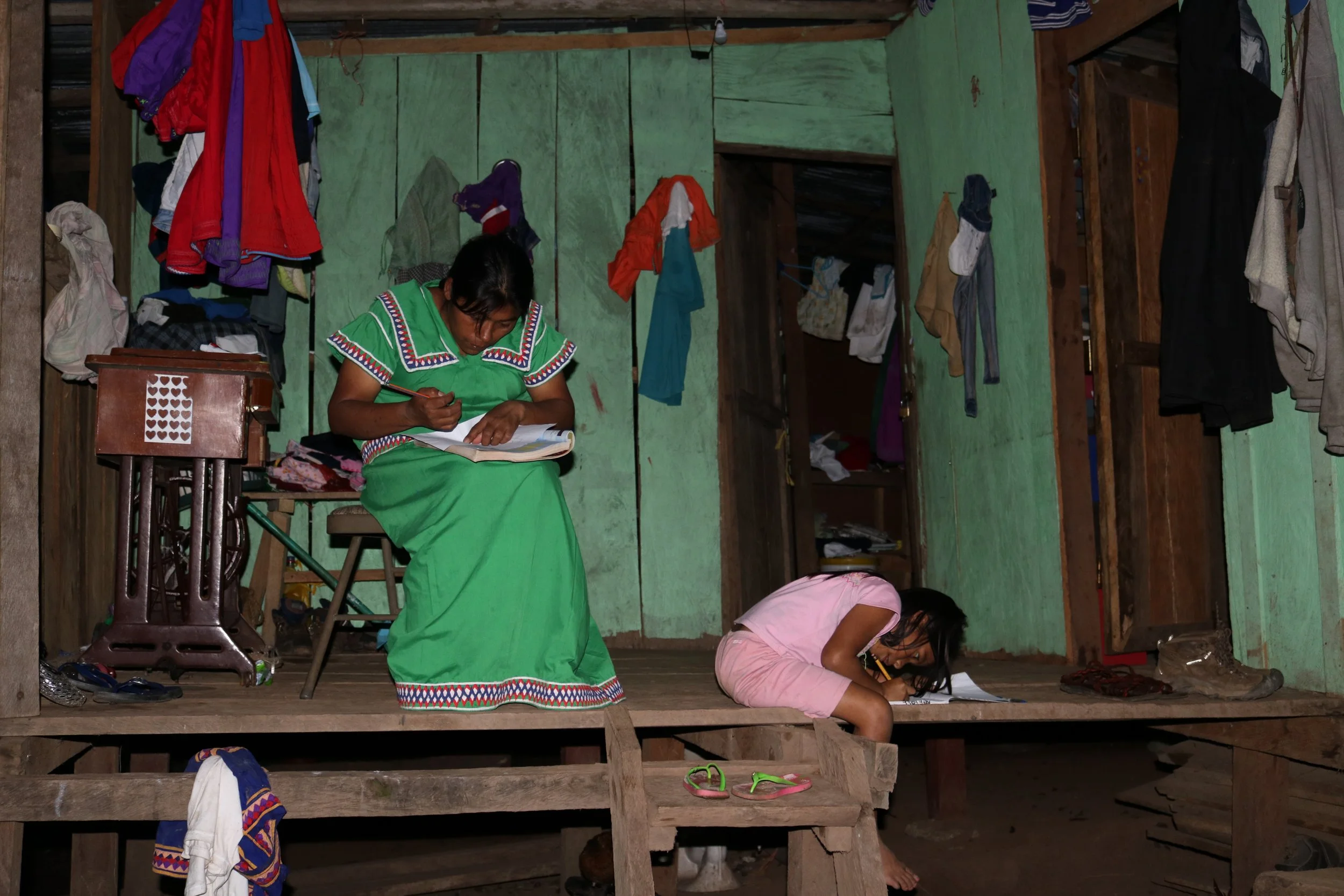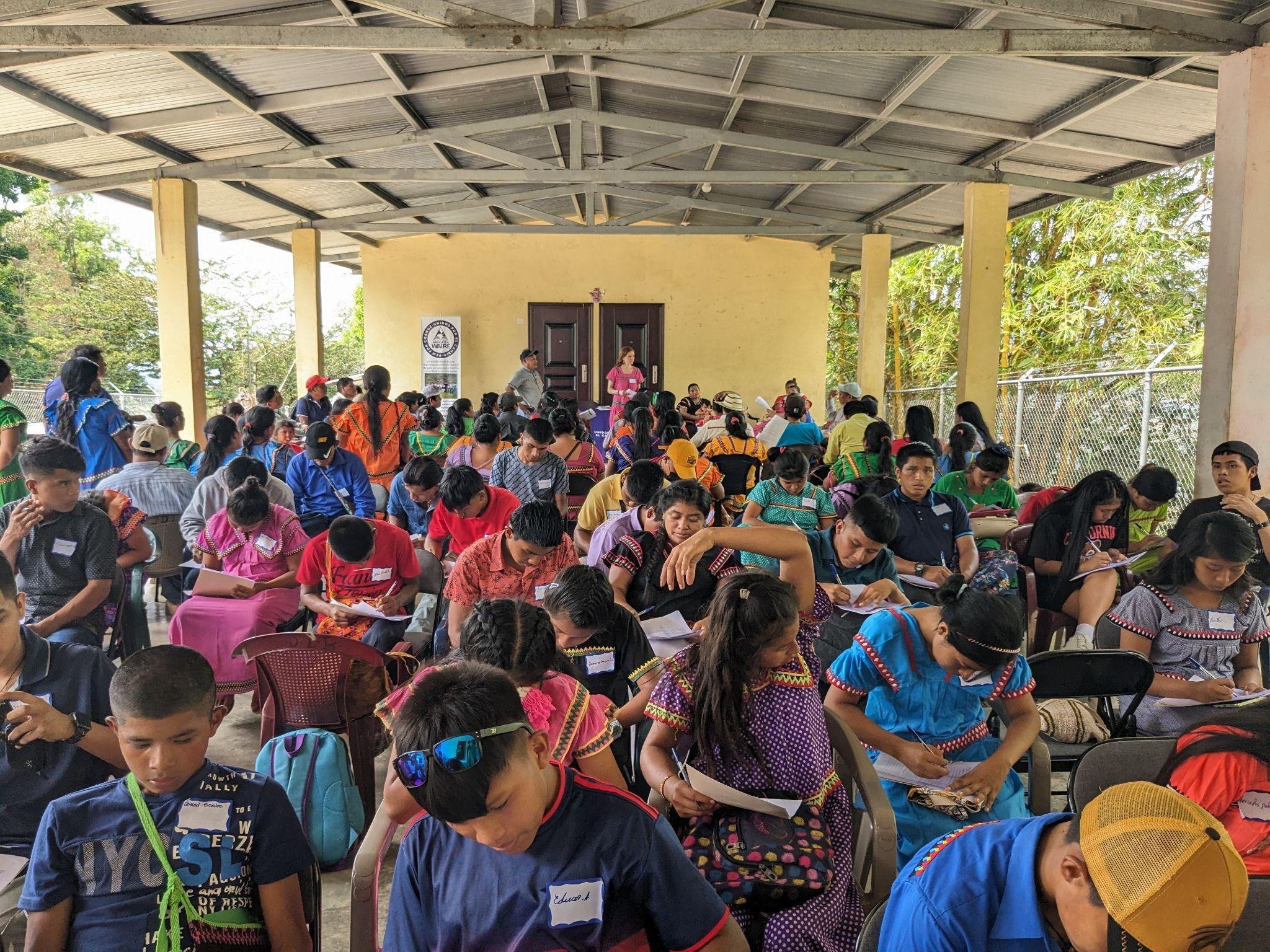It’s been over a year since the COVID-19 pandemic forced schools around the world to move to remote learning. Although most schools in the U.S. have at least partially re-opened by now, countries such as Panama have not been able to re-open as quickly. Lack of infrastructure and a limited access to vaccines have both contributed to the slow reopening of schools in Panama. With a new school year getting underway in Panama, we checked in with some of our students about how remote schooling has been this past year, the challenges they’ve faced, and how they have persevered during the toughest of circumstances.
One of the biggest challenges during remote schooling that our students mentioned is lack of consistent internet access. The Comarca Ngäbe-Buglé has inadequate infrastructure for internet and cell phone reception, and many parts of the Comarca have little-to-no internet or cell phone service. Often, students have to travel to other locations - say, the top of the nearest hill - to complete their school work for this reason. Students who are able to work from home don’t often have the luxury of quiet study spaces to focus. Since most students also don’t have access to computers or the internet, they do most of their work on phones and submit assignments via Whatsapp. This means there is an extra financial burden of buying data cards for cell phones just so students can complete and submit their assignments. One of our students, Xiomara, talks about the challenges she has faced during remote learning: “One of the biggest obstacles I’m having with distance learning is the bad internet connection, not being able to connect at class time, and failures in the equipment or work material that create delays and interruptions in my learning. But despite all this I try to catch up with the subjects.” Online learning is already frustrating for anyone you ask, but add inconsistent internet and inadequate resources and it becomes a nearly impossible situation.
““One of the biggest obstacles I’m having with distance learning is the bad internet connection, not being able to connect at class time, and failures in the equipment or work material that create delays and interruptions in my learning. But despite all this I try to catch up with the subjects.””
To make matters worse, Panama was hit with heavy rainstorms this past year from Hurricanes Eta and Iota, causing major damage and disrupting any cell service in the Comarca. Many of our students have to repeat the year or retake some classes because of these disruptions. Students living in the Comarca Ngäbe-Buglé already have a disadvantage in schooling compared to their peers in the rest of the country. The pandemic and remote schooling has only widened the gap for these students, making it even harder for them to catch up if they pursue higher education. Few for Change President, Katie Clay, writes more about the challenges (and successes) of the past year in her blog post here.
A road in the Comarca Ngäbe-Buglé after Hurricane Eta
Everyone can agree that the quality of remote education is not the same as in person learning. In Sadoc ’s words, “Education has changed for us in an unexpected way that we weren’t prepared for... virtual education is not good, we don’t learn like in face-to-face classes, as students we prefer in-person classes.” Xiomara also talks about not being able to easily ask teachers for help, and how the syllabi for her classes have actually become more intense with remote learning. Students want to be learning in the classroom, where they can freely ask questions, talk with their peers, and get help and feedback on their work. There is some hope on the horizon for a return to in-person learning though, as more than half of all teachers in Panama have been vaccinated, more than 450 of whom work in the Comarca Ngäbe-Buglé, and vaccine numbers have been on the rise nationwide. To learn more about Panama’s education response during the pandemic, check out Few for Change Intern Margaux Petruska’s blog here.
The advisory board, or junta directiva, meeting to discuss how best to support Few for Change students during the pandemic.
Late last year, we made the difficult decision with the community advisory board or junta directiva not to award new student scholarships this year because we didn’t want to endanger our community volunteers or students and their families. We are, however, continuing to fund our students that are currently enrolled in school and we are committed to supporting them through all of the challenges the pandemic has brought with it. Classes have looked very different this year, but our scholarships have been more important to these students than ever before. Sadoc said, “The scholarship from Few For Change has been a great help for me as a student ... and also for my parents and my family since with the current situation and the arrival of covid-19 in our country, unemployment has increased, which prevents students like me from having what is necessary for classes.”
““The scholarship from Few For Change has been a great help for me as a student ... and also for my parents and my family since with the current situation and the arrival of covid-19 in our country, unemployment has increased, which prevents students like me from having what is necessary for classes.””
Although our scholarships can’t end a global pandemic or change remote schooling, they can support our students and help them and their families through an incredibly difficult time.
On Match Day 2021, will you donate to students like Xiomara and Sadoc to help them to continue their education, and to help their communities become more resilient to future challenges?
















